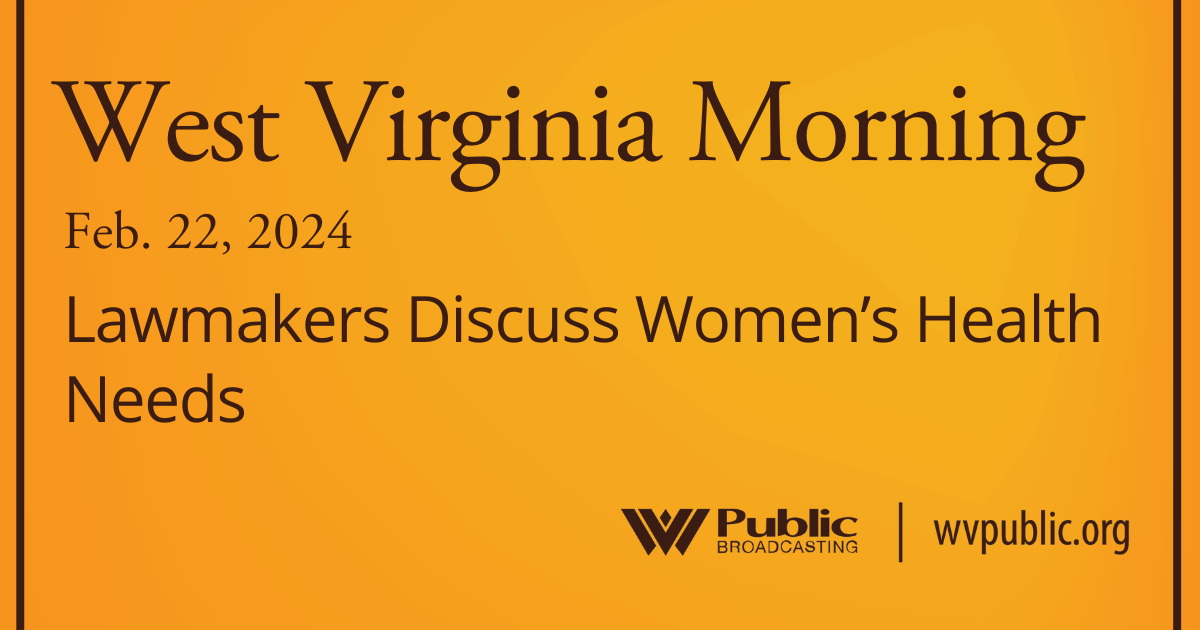On this West Virginia Morning, many bills and amendments have been introduced in the state legislature this year that focus on women’s health policy. But feminine hygiene isn’t one of them. Briana Heaney talks with Sen. Patricia Rucker, R-Jefferson, and Del. Anitra Hamilton, D-Monongalia, about women’s health in the state and legislation that affects women.
Also, in this show, aftereffects from the coronavirus pandemic continue to challenge our health care systems. The most recent spotlight is on Medicaid which offers health coverage for more than 90 million Americans with limited resources. After several years of continuous coverage, everyone must now reapply to determine eligibility. In a new episode of Us & Them, host Trey Kay reports on how that process is going for residents of the Mountain State.
Kay talked with Deedra Toppings about her experience. She was covered by Medicaid when her headaches began eight years ago, but that changed. We listen to an excerpt from our latest episode. To hear this full episode, tune in to WVPB Radio on Thursday, Feb. 22 at 8 p.m., on Saturday, Feb. 24 at 3 p.m. or on your own time at wvpublic.org.
West Virginia Morning is a production of West Virginia Public Broadcasting which is solely responsible for its content.
Support for our news bureaus comes from Shepherd University.
Eric Douglas is our news director and producer.
Listen to West Virginia Morning weekdays at 7:43 a.m. on WVPB Radio or subscribe to the podcast and never miss an episode. #WVMorning
